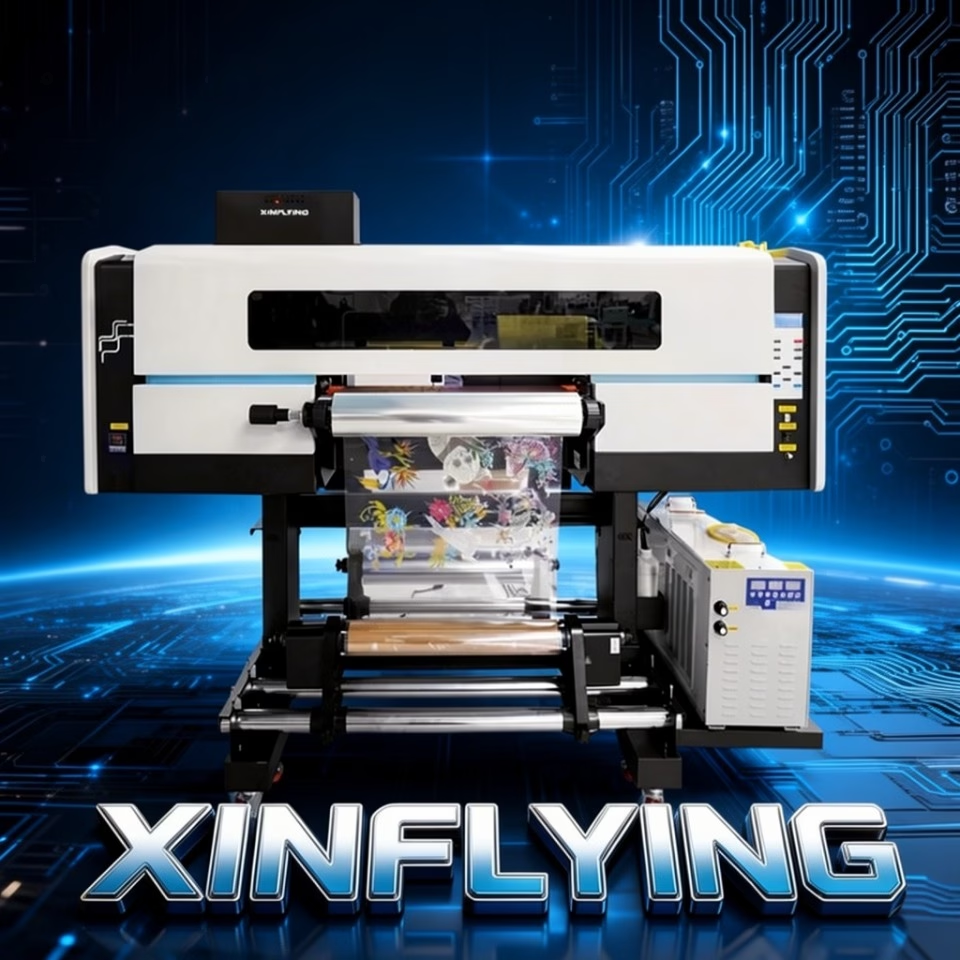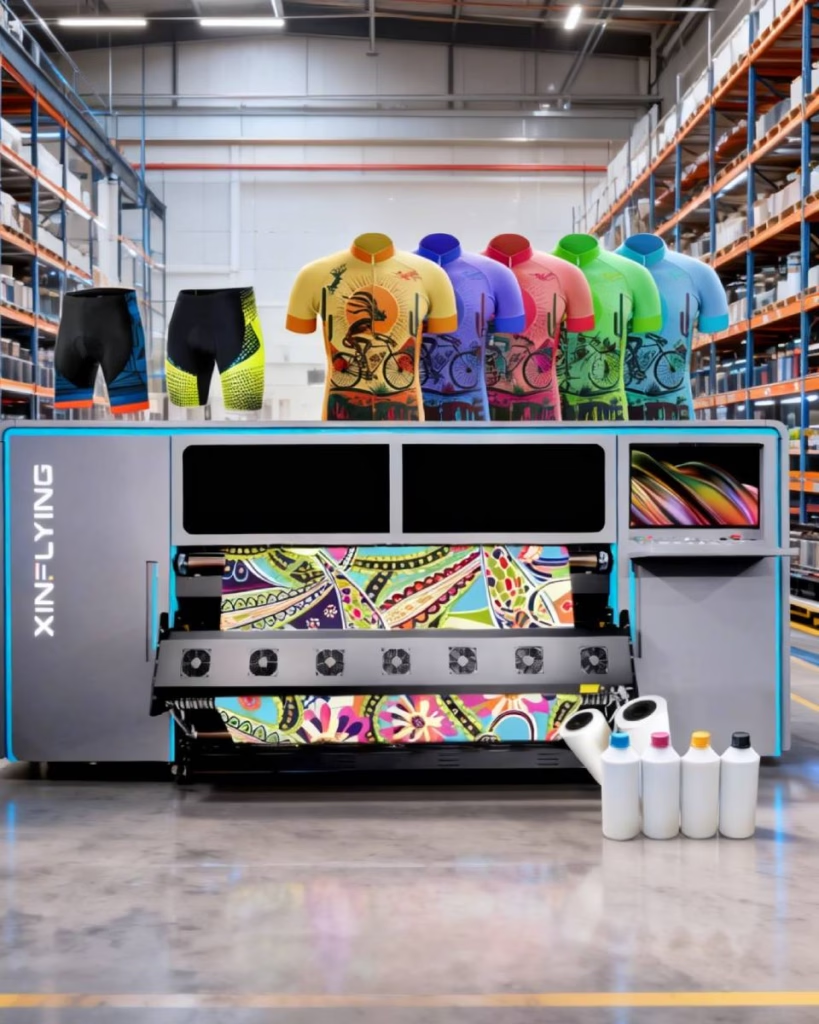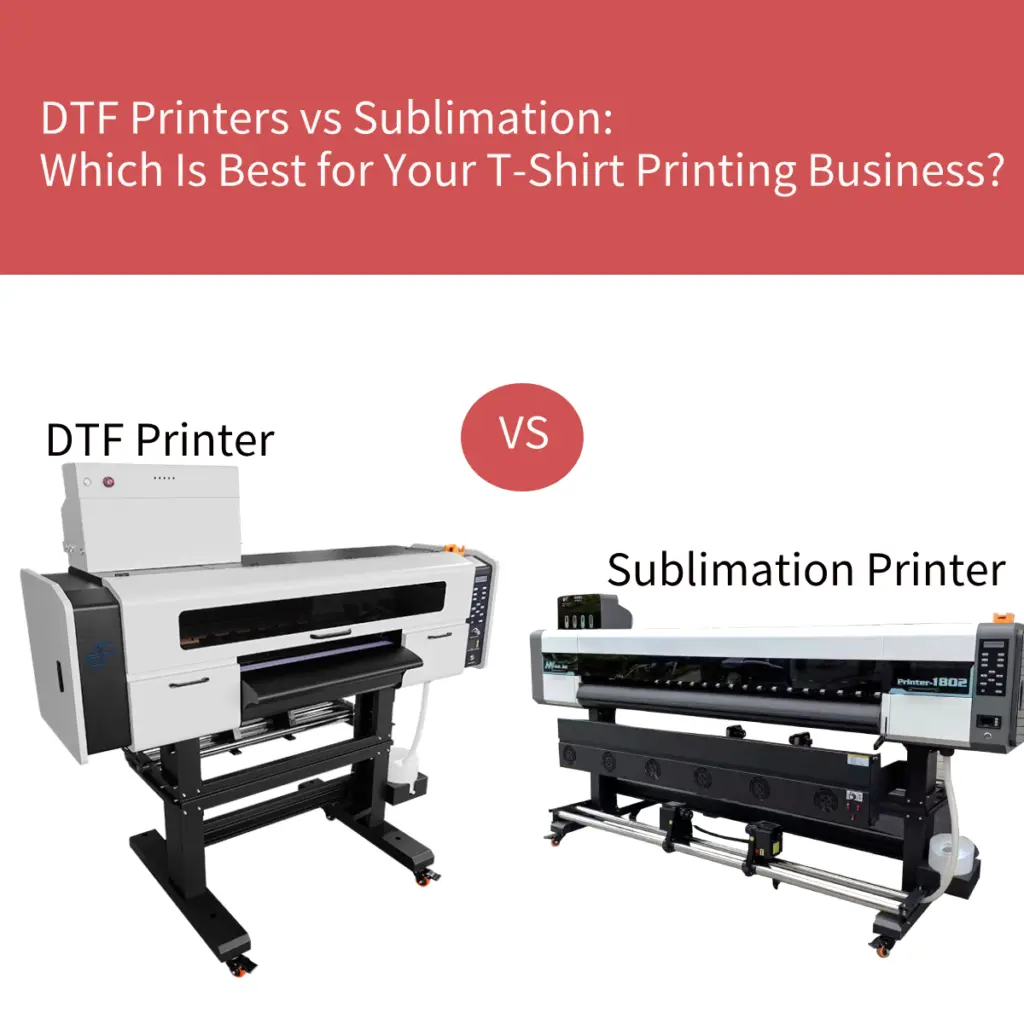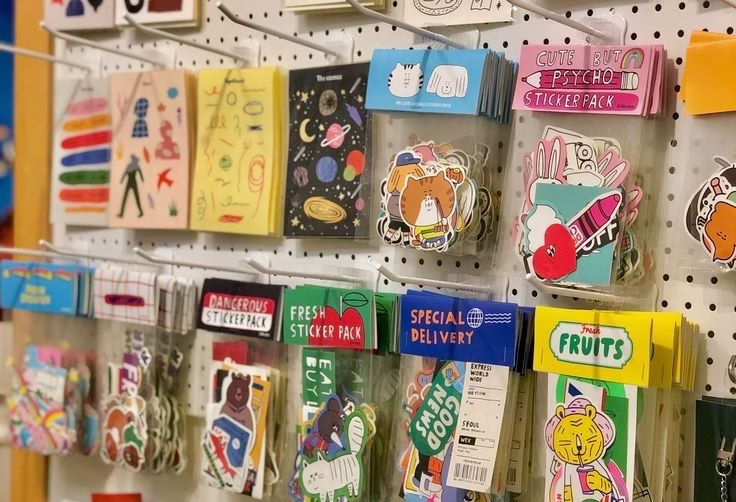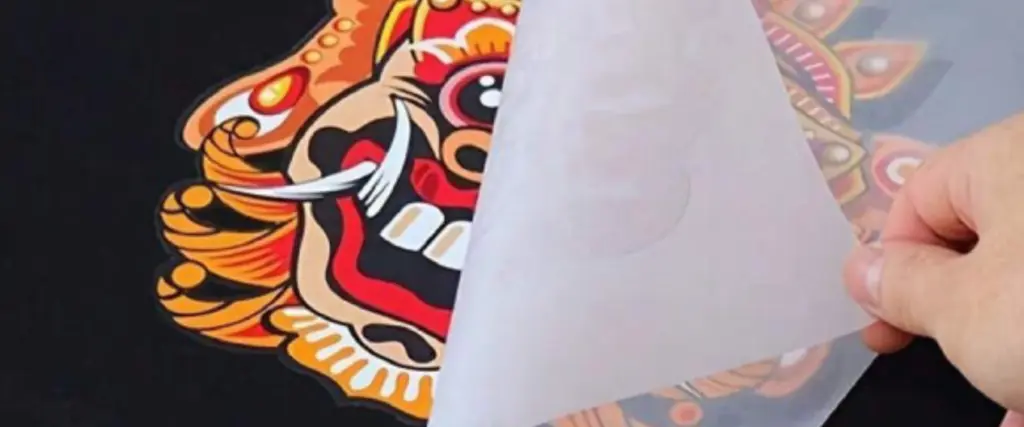Já se perguntou o que diferencia a impressão DTF da serigrafia? No mundo em constante evolução da tecnologia de impressão, é crucial saber qual método melhor atende às suas necessidades. Vamos mergulhar nas complexidades do DTF e da serigrafia, pesando seus prós e contras para ajudá-lo a fazer uma escolha informada. Pronto para explorar o fascinante mundo da impressão? Vamos começar!
O que é impressão DTF?
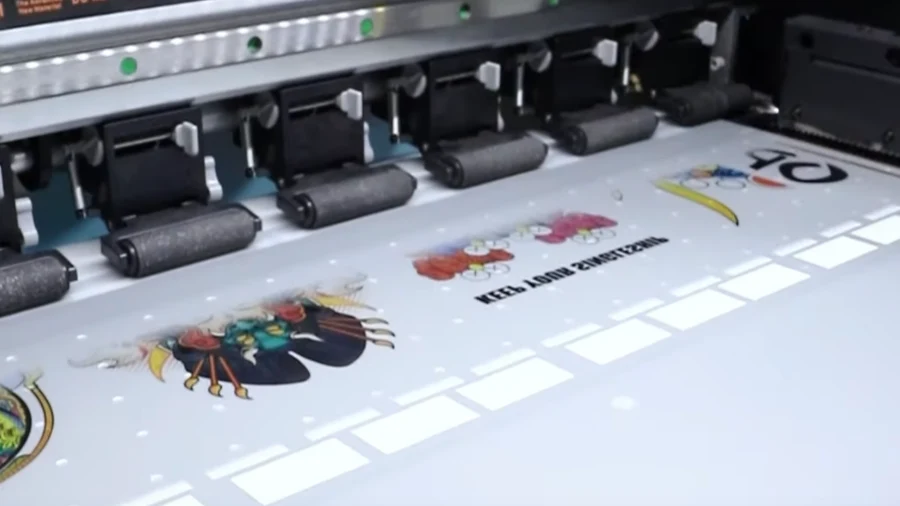
DTF, ou impressão direta no filme, é uma técnica moderna onde os desenhos são impressos em um papel especial Filme DTF e depois transferido para o tecido usando calor. Este método inovador revolucionou a indústria gráfica, oferecendo versatilidade e resultados de alta qualidade que atendem a uma variedade de materiais e aplicações.
Prós e contras da impressão DTF
Prós da impressão DTF
A impressão DTF apresenta diversas vantagens que a tornam uma escolha popular. Primeiro, é altamente versátil, permitindo que você imprima em uma ampla variedade de materiais, Incluindo algodão, nylon, poliéster, e misturas, etc. Isso significa que você pode criar tudo, desde camisetas personalizadas até itens promocionais, sem se preocupar com a compatibilidade do tecido.. Adicionalmente, As impressões DTF são conhecidas pela sua durabilidade e cores vibrantes, garantindo que seus designs permaneçam nítidos e atraentes ao longo do tempo. Mais, o processo de impressão DTF é relativamente simples e fácil de usar, tornando-o acessível mesmo para iniciantes.
Contras da impressão DTF
No entanto, A impressão DTF tem suas desvantagens. Um dos principais contras é o custo inicial do Máquina impressora DTF e materiais, o que pode ser um investimento significativo para pequenas empresas. Além disso, enquanto o processo em si é fácil de usar, alcançar resultados ideais requer um pouco de curva de aprendizado e atenção aos detalhes. Finalmente, o filme DTF e pós adesivos usado em DTF pode adicionar uma etapa extra ao processo, tornando-o um pouco mais demorado em comparação com outros métodos.
O que é serigrafia?
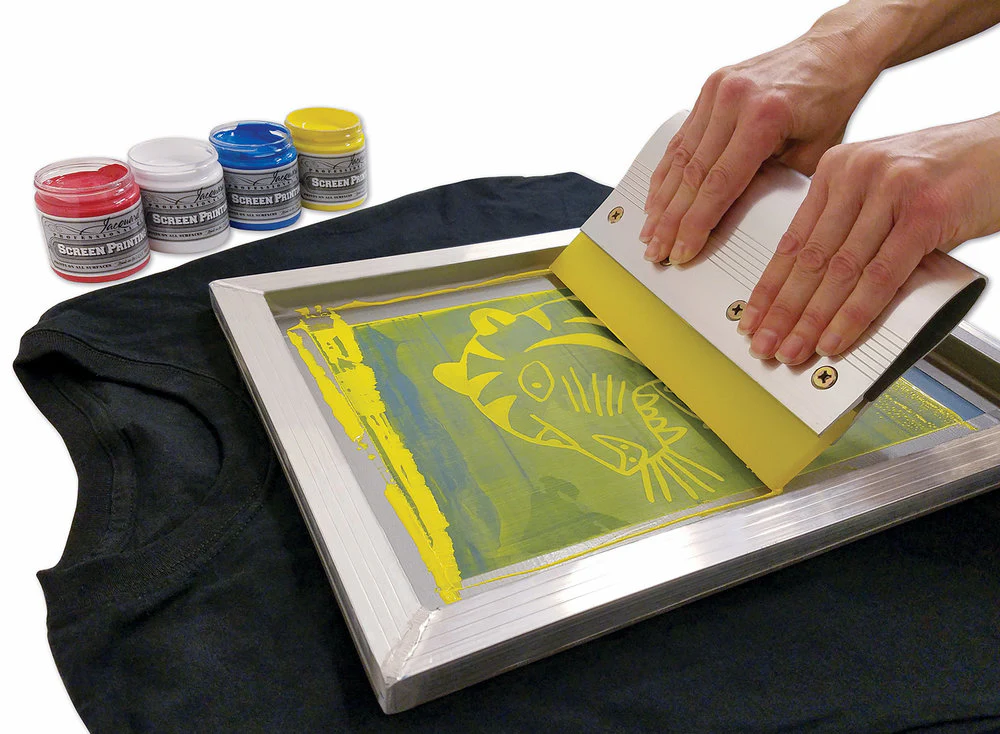
A serigrafia é um método tradicional em que a tinta é passada através de um estêncil (ou tela) no tecido. Esta técnica existe há séculos e é conhecida por produzir vibrantes, impressões duradouras, especialmente em pedidos em grandes quantidades.
Prós e contras da serigrafia
Prós da serigrafia
A serigrafia brilha quando se trata de produzindo grandes quantidades de impressões de forma eficiente. É econômico para pedidos em grandes quantidades e oferece durabilidade, resultados de alta qualidade. As estampas são vibrante e pode suportar lavagens repetidas sem desbotar, tornando-o ideal para roupas e mercadorias personalizadas. Adicionalmente, a serigrafia oferece grande versatilidade em termos de tipos de tinta, permitindo efeitos especiais como impressões metálicas ou que brilham no escuro.
Contras da serigrafia
Por outro lado, a serigrafia tem suas limitações. O processo de configuração é trabalhoso e demorado, especialmente para designs complexos com múltiplas cores. Este método não é tão flexível com tipos de materiais, trabalhando principalmente melhor em superfícies planas e tecidos. Além disso, a impressão da tela não é econômica para pedidos pequenos devido aos custos significativos de configuração envolvidos.
Impressão DTF vs.. Impressão de tela
A impressão DTF e a serigrafia são duas técnicas de impressão comuns na indústria gráfica. Vamos nos aprofundar na diferença entre dtf e serigrafia.
Durabilidade
Quando se trata de durabilidade de impressão em tela vs. dtf, ambos os métodos oferecem impressões duradouras. No entanto, As impressões DTF tendem a ser mais flexíveis e menos propensas a rachar com o tempo, enquanto as serigrafias são excelentes em resistência à lavagem.
Qualidade de impressão
A qualidade de impressão é outro fator crucial. A impressão DTF oferece alta resolução, estampas detalhadas com cores vibrantes, tornando-o perfeito para designs complexos. Impressão de tela, ao mesmo tempo que oferece excelente qualidade, pode lutar com detalhes finos e gradientes de cores complexos.
Tecidos e Materiais
A impressão DTF se destaca em termos de compatibilidade de materiais. Você pode imprimir em praticamente qualquer tecido, incluindo sintéticos e misturas. A serigrafia é mais limitada, funcionando melhor principalmente em algodão e outras fibras naturais.
Tipos de tinta
DTF usa tintas especializadas que aderem bem a vários materiais, garantindo durabilidade e vibração. A serigrafia usa uma variedade de tintas, incluindo plastisol e tintas à base de água, que pode produzir efeitos únicos, mas pode não aderir tão bem a todos os materiais.
Opções de cores
Em termos de opções de cores, A impressão DTF pode facilmente lidar com cores, impressões com qualidade fotográfica. A impressão em tela normalmente é limitada a menos cores devido à complexidade e ao custo de criação de múltiplas telas para cada cor.
Tempo de produção
O tempo de produção pode variar significativamente entre os dois métodos. A impressão DTF é geralmente mais rápida e eficiente para pedidos pequenos e médios. Impressão de tela, no entanto, torna-se mais eficiente em termos de tempo com pedidos maiores assim que a configuração inicial for concluída.
Eficiência de custos
A eficiência de custos depende do tamanho do pedido. Para tiragens pequenas e médias, A impressão DTF é mais econômica devido aos menores custos de configuração. Impressão de tela, por outro lado, torna-se mais econômico para grandes lotes.
DTF é melhor que serigrafia?
Então, DTF é melhor que serigrafia? Depende de suas necessidades específicas. Se você precisa de versatilidade, alto detalhe, e configuração rápida, DTF pode ser sua melhor aposta. Para pedidos de grandes volumes com designs simples, a serigrafia continua sendo uma escolha robusta e confiável.
DTF versus. Impressão de tela, Como escolher?
A escolha entre DTF e serigrafia depende dos requisitos do seu projeto. Considere o material, complexidade do projeto, tamanho do pedido, e orçamento. Para intrincado, projetos de pequenos lotes, DTF é um vencedor. Para pedidos em grandes quantidades com designs simples, a impressão da tela é difícil de superar.
Conclusão
No grande confronto de DTF vs serigrafia, não existe uma resposta única para todos. Cada método tem seus pontos fortes e aplicações ideais. Compreendendo o diferença entre DTF e serigrafia ajuda você a fazer a melhor escolha para suas necessidades exclusivas, garantindo que suas impressões sejam sempre de primeira linha.
Perguntas frequentes
1. A impressão DTF pode ser usada em qualquer tecido??
Sim, A impressão DTF é altamente versátil e pode ser usada em uma ampla variedade de tecidos, incluindo algodão, poliéster, e misturas.
2. A serigrafia é adequada para projetos detalhados?
A serigrafia pode lidar com designs detalhados, mas se destaca com ousadia, gráficos simples. Para detalhes intrincados, A impressão DTF pode ser uma escolha melhor.
3. Como o custo do DTF se compara ao da serigrafia?
A impressão DTF é geralmente mais econômica para pedidos pequenos e médios devido aos custos de configuração mais baixos, enquanto a serigrafia se torna mais econômica para grandes lotes.
4. Qual método é mais durável, DTF ou serigrafia?
Ambos os métodos oferecem impressões duráveis, mas as impressões DTF são mais flexíveis e menos propensas a rachar, enquanto as impressões em tela são altamente resistentes à lavagem.
5. Qual é a diferença de tempo de configuração entre DTF contra. transferências de impressão de tela?
A impressão DTF tem um tempo de configuração mais rápido, tornando-o ideal para pedidos menores. A serigrafia requer mais tempo de configuração, mas se torna mais eficiente com pedidos maiores.


